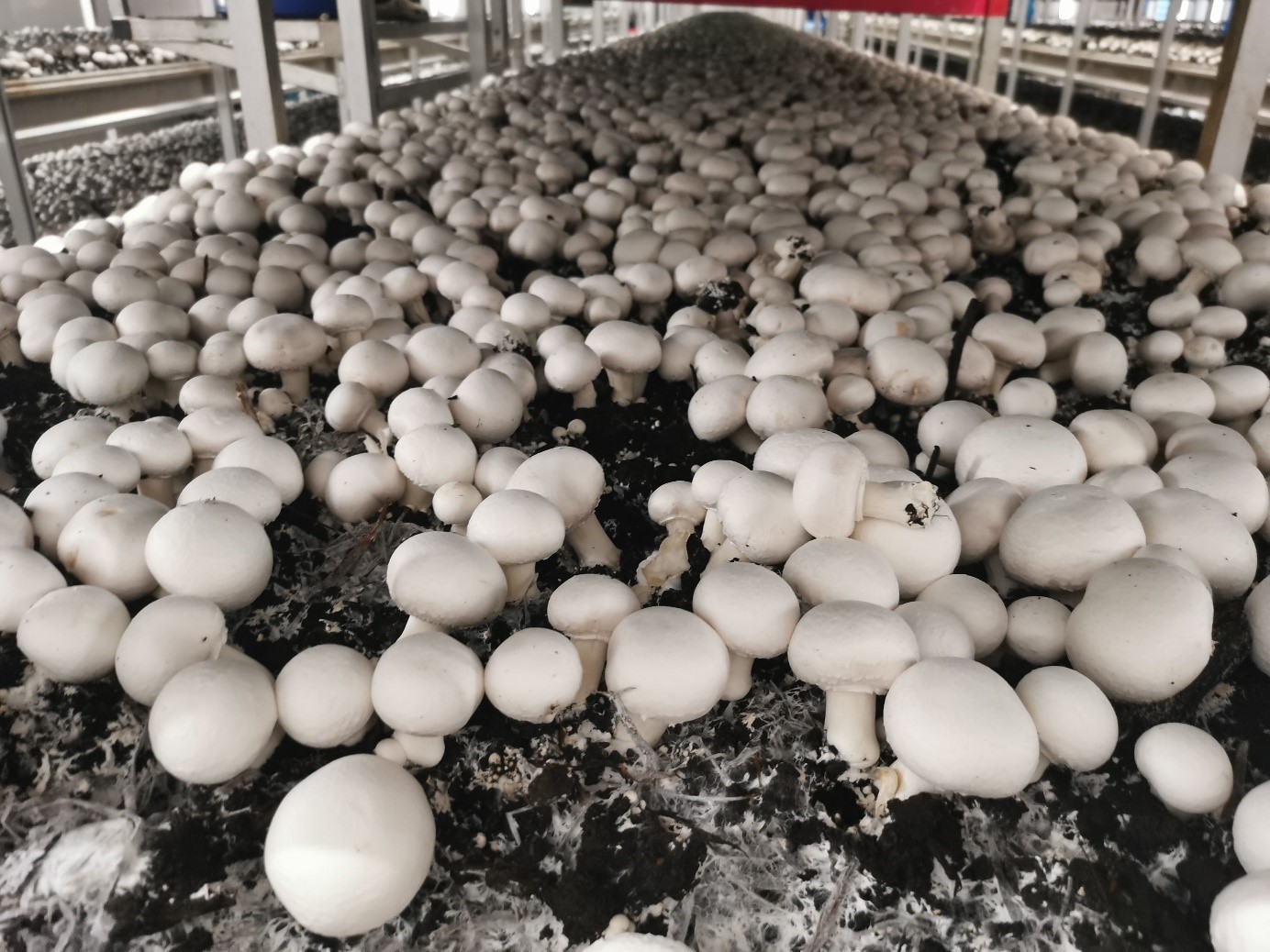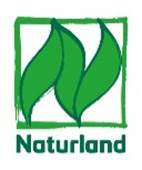Projects - Institute of Horticultural Sciences
Projects
The Institute of Horticulture also carries out state tasks stipulated by legislation (e.g. gene conservation, variety breeding, variety production), and in addition carries out innovation activities in the form of commission contracts and tenders. The Institute uses and partly manages several hundred hectares of agricultural land, which enables a wide-ranging examination of the Hungarian agricultural areas for each plant species.
The consortium of Bio-Fungi Kft. and the Hungarian University of Agriculture and Life Sciences (MATE) returned HUF 452.13 million to the project ID number GINOP_PLUSZ-2.1.1-21-2022-00183 entitled "Research and development of the recycling of mushroom cultivation waste with insect larvae" won a non-reimbursable European Union grant, and the total cost of the project is HUF 812.38 million.
During the cultivation of edible mushrooms, on the one hand, a large amount of harvested compost and other picking "waste" are produced, which are rich in nutrients and can be returned to the circular economy after some processing. One of the goals of the project is to select the insect species that consume the nutrients in the mushroom compost and transform them into additional valuable substances. This represents a professional and scientific challenge, because at present only the larvae of very few insect species are able and suitable for this, and those that are, are typically difficult to reproduce. The research until the spring of 2025 will therefore focus on selecting the larval species that can process the harvested mushroom compost in large quantities and efficiently, all while developing a modular larval container technology.
With this, several industry problems can be solved at the same time. According to our expectations, insect protein can be used in mushroom cultivation as an enrichment material, on the other hand, the active ingredient of the compost is concentrated in the slag material produced during the production of insect protein, which, with proper recycling, would reduce the use of fertilizers, which have become very expensive nowadays, in crop cultivation. If the project is successfully implemented, we would be able to achieve all this with less environmental impact and in a sustainable manner, in accordance with the principles of the circular economy.


The main goal of the project "Boosting innovation in ORGANIC FRUIT growing through stronger networks" (GA 862850) is to close the gap between existing innovative knowledge and its practical implementation, which aims to meet the needs of organic fruit growing. The project focuses on organic apples, stone fruits and citrus fruits, and aims to strengthen the competitiveness of European organic fruit production by:
· Gathering and synthesizing existing practical and scientific knowledge on organic fruit production in order to disseminate it widely across EU countries through simple formats such as e-learning, podcasts, videos and short articles.
· Strengthening the networks established in organic fruit production and creating links between them in order to create a strong network of organic fruit producers and stakeholders with good information flow.
The project is coordinated by the Naturland International Association of Agricultural Producers and implemented in cooperation with 15 partner organizations [1] representing a total of 12 countries. They will work together for three years to provide practical information to farmers on how to manage the challenges of pests and diseases in fruit production.
Visit the official website of BIOFRUITNET at https://biofruitnet.eu/



The BIOFRUITNET project – “Boosting Innovation in ORGANIC FRUIT production through stronger networks” (GA 862850) main objective is to close the gap between existing innovative knowledge and its practical implementation, aiming to fulfill the needs of the organic fruit growing. The project focus on organic pome, stone and citrus fruits and aims to strengthen the competitiveness of European organic fruit production by:
· Collecting and synthesizing existing practical and scientific knowledge on organic fruit-growing to distribute it widely among the EU countries through easy formats like e-learning, podcasts, videos and short articles.
· Strengthening the established networks in organic fruit growing and establish links between them to create strong networks of organic fruit producers and stakeholders with a good flow of information.
The project is coordinated by the International farmers association Naturland and carried out in collaboration with 15 partner [1] organisations representing 12 countries in total. They will work together during 3 years to provide information to the farmers in a practical way to tackle the challenges of pests and diseases in fruit crops.
Visit BIOFRUITNET’s official website at https://biofruitnet.eu/



The recycling of mushroom cultivation waste with insect larvae is being researched
The consortium of Bio-Fungi Kft. and the Hungarian University of Agriculture and Life Sciences (MATE) returned HUF 452.13 million to the project ID number GINOP_PLUSZ-2.1.1-21-2022-00183 entitled "Research and development of the recycling of mushroom cultivation waste with insect larvae" won a non-reimbursable European Union grant, and the total cost of the project is HUF 812.38 million.
During the cultivation of edible mushrooms, on the one hand, a large amount of harvested compost and other picking "waste" are produced, which are rich in nutrients and can be returned to the circular economy after some processing. One of the goals of the project is to select the insect species that consume the nutrients in the mushroom compost and transform them into additional valuable substances. This represents a professional and scientific challenge, because at present only the larvae of very few insect species are able and suitable for this, and those that are, are typically difficult to reproduce. The research until the spring of 2025 will therefore focus on selecting the larval species that can process the harvested mushroom compost in large quantities and efficiently, all while developing a modular larval container technology.
With this, several industry problems can be solved at the same time. According to our expectations, insect protein can be used in mushroom cultivation as an enrichment material, on the other hand, the active ingredient of the compost is concentrated in the slag material produced during the production of insect protein, which, with proper recycling, would reduce the use of fertilizers, which have become very expensive nowadays, in crop cultivation. If the project is successfully implemented, we would be able to achieve all this with less environmental impact and in a sustainable manner, in accordance with the principles of the circular economy.


A BIOFRUITNET project
The main goal of the project "Boosting innovation in ORGANIC FRUIT growing through stronger networks" (GA 862850) is to close the gap between existing innovative knowledge and its practical implementation, which aims to meet the needs of organic fruit growing. The project focuses on organic apples, stone fruits and citrus fruits, and aims to strengthen the competitiveness of European organic fruit production by:
· Gathering and synthesizing existing practical and scientific knowledge on organic fruit production in order to disseminate it widely across EU countries through simple formats such as e-learning, podcasts, videos and short articles.
· Strengthening the networks established in organic fruit production and creating links between them in order to create a strong network of organic fruit producers and stakeholders with good information flow.
The project is coordinated by the Naturland International Association of Agricultural Producers and implemented in cooperation with 15 partner organizations [1] representing a total of 12 countries. They will work together for three years to provide practical information to farmers on how to manage the challenges of pests and diseases in fruit production.
Visit the official website of BIOFRUITNET at https://biofruitnet.eu/



The BIOFRUITNET project – “Boosting Innovation in ORGANIC FRUIT production through stronger networks” (GA 862850) main objective is to close the gap between existing innovative knowledge and its practical implementation, aiming to fulfill the needs of the organic fruit growing. The project focus on organic pome, stone and citrus fruits and aims to strengthen the competitiveness of European organic fruit production by:
· Collecting and synthesizing existing practical and scientific knowledge on organic fruit-growing to distribute it widely among the EU countries through easy formats like e-learning, podcasts, videos and short articles.
· Strengthening the established networks in organic fruit growing and establish links between them to create strong networks of organic fruit producers and stakeholders with a good flow of information.
The project is coordinated by the International farmers association Naturland and carried out in collaboration with 15 partner [1] organisations representing 12 countries in total. They will work together during 3 years to provide information to the farmers in a practical way to tackle the challenges of pests and diseases in fruit crops.
Visit BIOFRUITNET’s official website at https://biofruitnet.eu/




